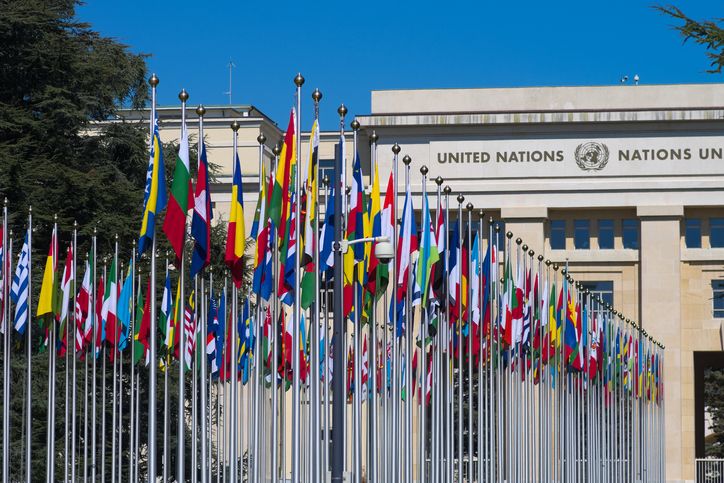The US and the Bill & Melinda Gates Foundation pledged nearly $11 billion over five years to make global food production and consumption healthier, more equitable, and more environmentally-friendly at the first-ever UN Food Systems Summit last week.
A host of coalitions and initiatives were also announced to achieve this goal – among them, a plan to boost innovation to improve crop productivity while reducing harm to the planet.
The virtual event, held as part of the 76th Session of the UN General Assembly in New York, was the culmination of an 18-month process that included hundreds of dialogues with various stakeholders all over the world.
Summit organisers said over 51,000 people tuned in from 193 countries. However, hundreds of civil society groups and grassroots organizations boycotted the summit over concerns around corporate influence, and held counter-events to highlight the importance of smallholder farmers and press for a more fundamental overhaul of global food systems.
The Food Systems Summit’s virtual format meant there was little room for networking and interaction, and speeches and pledges, of which there were many, were delivered mainly through pre-recorded videos.
“We need food systems that support the health and wellbeing of all people. Malnutrition, hunger, and famine are not forces of nature – they are the result of the actions, or inactions, of all of us,” UN Secretary General António Guterres said in a speech at the summit.
He also released a longer statement calling for investment in science and innovation to achieve the 17 Sustainable Development Goals that governments had signed up to back in 2015.
The US pledged $10 billion to food systems transformation, with half to be spent domestically and the other half globally through USAID’s Feed the Future initiative. The latter includes $60 million in new research awards to reduce food loss and waste, $38 million to expand food fortification, and a virtual fellowship programme for female policymakers in Africa.
The Gates Foundation’s pledged $922 million will go towards reducing malnutrition globally. Co-chair Melinda French Gates, who made the announcement, said this was “the largest commitment” the nonprofit has made in this area.
There was also a glimpse of the Agriculture Innovation Mission for Climate (AIM4C), a high-profile joint initiative by the US and the UAE, which will formally launch at the upcoming COP26 UN climate negotiations in Glasgow, UK. It said a dozen new governments, including Bangladesh, Finland, Japan, and Kenya, as well as the Gates Foundation and the UN Food and Agriculture Organization, have joined the initiative.
Sean de Cleene, a member of the executive committee at the World Economic Forum and co-chair of the ‘Innovation’ part of the Food Systems Summit’s ‘Levers of Change’ workstream, urged governments to “allocate 1% of the proportion of [their] GDP that relates to food systems, to innovation and R&D.”
He also announced a data and digital coalition that aims to use technologies “to their fullest potential.” This will include the creation of a global digital map that will link individuals, small agribusinesses, policy makers, and digital service providers.
Speakers at the summit emphasized the importance of change occurring at the national level, and the UN identified five action areas that can guide the transformation: nutritious food, nature-based solutions, fair and decent work, resilience to weather extremes and other shocks, and accelerating the means of implementation.
Sophie Healy-Thow, co-chair of the Food Systems Summit’s Youth Liaison group, praised the event for engaging with young people.
“It’s the first UN conference I felt, as a young person, properly included in,” she told AFN.
“It brought so many young people and youth organizations together and supported the creation of many new youth movements such as the Act4Food, Act4Change campaign which, by the day of the summit, had over 100,000 pledges from youth and allies of youth.”
However, she is less hopeful the world is on a clear course to change food systems, which account for more than a third of global greenhouse gas emissions and are a primary driver of biodiversity loss.
“The way things are going currently I do not believe we will be on track to transform in a meaningful way. We need action and we need it urgently,” she said.





